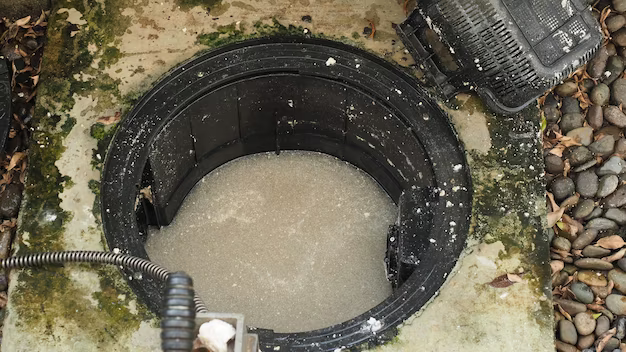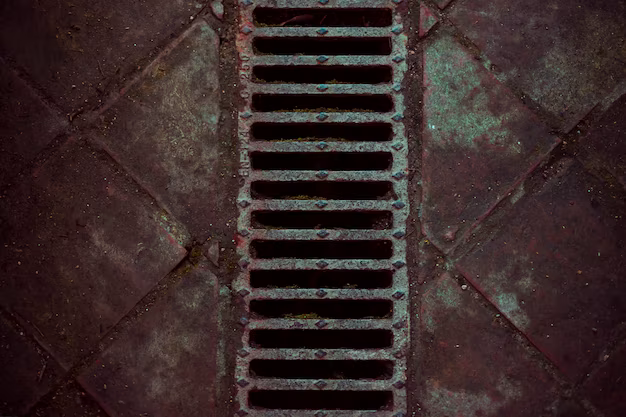Poop coming out of basement drain
Overview of the Problem
Dealing with sewage backups can be a homeowner’s worst nightmare, especially if the incident involves fecal matter coming out of the basement drain. This is a widespread plumbing problem that affects thousands of homeowners every year, and it can occur for various reasons. Some of the most common causes of sewage backups include clogged drain pipes, tree roots growing into the sewer lines, backwater valves malfunctioning, and problems with the sewer lines or septic tank.

In many cases, the problem can go unnoticed until it’s too late. The contaminated water that overflows from the drain can leave an awful smell in the basement, damage property, and pose health risks to your family and pets. The warm water and organic waste from the sewage can attract bacteria and rodents, and increase the growth of mold and mildew, leading to respiratory ailments.
Nonetheless, it’s crucial to address the problem as soon as you notice it. While some homeowners may attempt to fix the issue themselves using drain snakes, plungers, or shop vacs, these methods are usually temporary and may fail to address the root cause of the problem. It’s recommended to seek the services of a professional plumber who has experience dealing with basement drain backups. They have the necessary tools, technology, and expertise to locate the exact location of the clog or blockage and fix the problem efficiently.
In the next section of this article, we will explore some of the common causes of basement drain backups and the signs that indicate you have a problem. We will also provide insights on how to prevent future blocking of your drainage system and keep your household sanitary and safe.
Causes of Sewage Backup in Basement Drains
Sewage backup in basement drains is a common plumbing issue that no homeowner wants to deal with. It’s unpleasant, smelly, and can pose serious health risks. However, understanding the root causes of basement drain backups can help prevent them from occurring in the first place.
One common cause of basement drain backups is clogged drain lines. Over time, debris such as oil, grease, soap scum, and hair can build up in the drain pipes leading to the basement. As the clog becomes more severe, it prevents wastewater from flowing freely, leading to a backup in the basement drain.
Lastly, a sewer line blockage can cause sewage to backup into the basement. This can occur due to a buildup of somethings such as wipes, paper towels, sanitary items, or other foreign objects that should not be flushed down the toilet or put into the drains.
In conclusion, by being aware of these common causes of basement drain backups, homeowners can take preventative measures to reduce the risk of sewage backup. Regular drain cleaning, maintaining trees and shrubs near the house, inspecting and maintaining the backwater valve, and regular septic system maintenance can help avoid such problems. If you experience sewage backup in your basement, we recommend contacting a professional plumber to identify and fix the problem efficiently.
Potential Hazards of Backing Up Sewage in Basement Drains
A backed-up basement drain can be a homeowner’s worst nightmare, especially when it’s raw sewage that’s come up from the drain. Besides being incredibly unpleasant to deal with, sewage water poses a significant health risk to human beings.
Raw sewage contains an array of harmful bacteria, viruses, and parasites that can cause serious illnesses in humans. Exposure to these pathogens can occur through direct contact with the contaminated water or by inhaling the foul-smelling gases that sewage emits. These gases can also lead to dizziness and nausea.
It’s important to note that homeowners’ insurance may not cover damages caused by sewage backups. That’s why it’s essential to take preventative measures and keep an eye out for signs of drainage problems. Performing regular maintenance on backwater valves, sump pumps, and other plumbing systems can prevent backups from occurring.

In conclusion, sewage backups in basement drains are not only unpleasant but pose severe health hazards and property damage. Therefore, homeowners must recognize the warning signs and take immediate action to prevent such backup from happening.
Health Risks Associated with Sewage Backup in Basements
Sewage backup in basements can pose serious health risks to homeowners. Raw sewage contains a variety of harmful pathogens, including bacteria, viruses, and parasites. Exposure to these pathogens can occur through direct contact with contaminated water, or by inhaling the unpleasant gases that sewage emits. These gases can cause dizziness and nausea, and may even lead to more serious health problems.
One of the most significant risks associated with sewage backup is the potential for diseases to spread. Sewage can contain a variety of pathogens, including E. coli and salmonella, which can cause serious gastrointestinal issues. In addition, the sewage may contain hepatitis A, a virus that can cause liver damage and even lead to liver failure. Sewage also may contain norovirus, a highly contagious virus that can cause vomiting and diarrhea.
To avoid health risks associated with sewage backup in basements, it’s crucial to take preventative measures. Homeowners should regularly inspect their plumbing systems and perform regular maintenance on backwater valves, sump pumps, and other systems that may be at risk for backups. Additionally, it’s crucial to avoid flushing inappropriate items down the toilet, such as paper towels, feminine products, and other items that can clog drain pipes and cause backups.
In the event of a sewage backup, it’s essential to seek professional help to remove the contaminated water and ensure that the area is properly cleaned and disinfected. Homeowners should never attempt to clean up sewage on their own, as this can increase the risk of exposure to harmful pathogens and cause further health problems. By taking preventative measures and seeking professional help when necessary, homeowners can avoid the health risks associated with sewage backup in their basements.
Property Damage Risk Factors of Sewage Backup in Basement Drains
Sewage backup in basement drains is a common issue that can cause significant property damage. This is especially true if the homeowner isn’t aware of the early warning signs of sewage backup, which can lead to irreparable damage to their property.

One major risk factor associated with sewage backup is the potential for contaminated water to seep into the basement floor and walls. This water can contain harmful bacteria and viruses that can damage the foundation of the house, posing a serious health risk. In addition, the water may contain corrosive chemicals that can erode pipes, sewer lines, and other parts of the plumbing system. This type of damage can be costly to repair, and in some cases, it may require a complete overhaul of the plumbing system.
Finally, property damage from sewage backup can also lead to serious financial consequences. Depending on the extent of the damage, homeowners may be faced with significant repair bills, which can run into thousands of dollars. In addition, there may be additional costs associated with replacing personal belongings, such as furniture, carpets, and electronics.
In conclusion, sewage backup in basement drains poses a significant risk to homeowner’s property. It can cause structural damage, electrical problems, and contaminated water damage, leading to severe financial and health consequences. As such, it’s crucial for homeowners to take preventative measures to avoid sewage backup, such as performing regular maintenance on backwater valves and plumbing systems and avoiding flushing inappropriate items down the toilet or sink.
Meet Lila Robinson, an expert in the world of plumbing with a talent for delivering valuable insights and captivating articles on an array of plumbing topics. With years of experience handling complicated plumbing issues, Lila has become a go-to resource for homeowners and businesses alike.
Packing vast knowledge in plumbing tools and science, Lila creates a sense of community on her blog and social media accounts, engaging with readers from all walks of life. Her writing style is authentic, unique, and engaging, and she has an exceptional ability to break complex concepts into understandable ideas.
If you have encountered a plumbing issue, chances are Lila Robinson has conquered it. Her articles uncover the underlying problems behind some of the most unexpected plumbing problems, from tankless water heater error codes to drain snakes in vents.
Whether you’re a beginner or an experienced plumber, Lila Robinson’s blog has something for you. Follow her social media accounts to keep up-to-date with the latest posts and join the conversation.